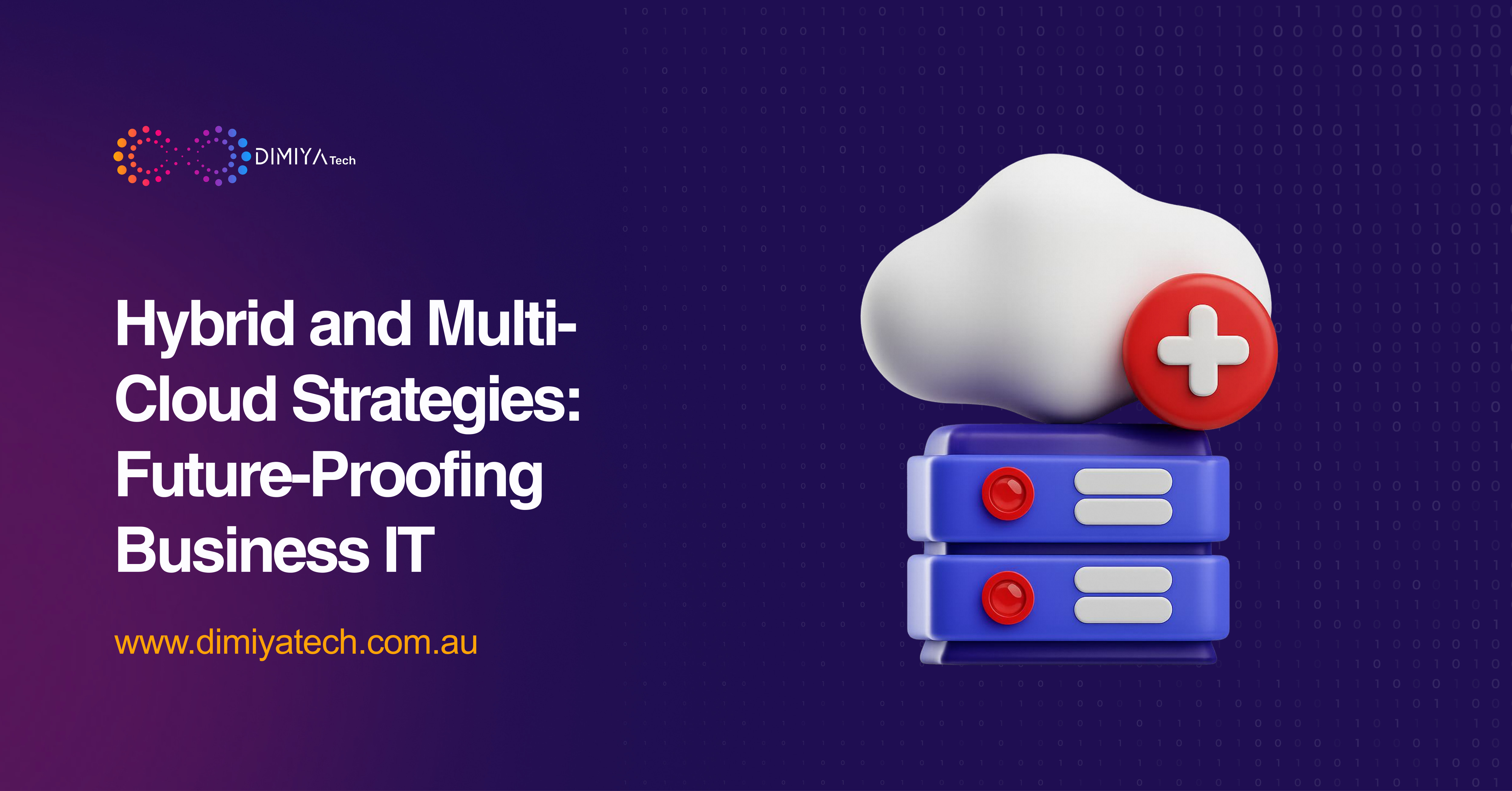
Hybrid and Multi-Cloud Strategies: Future-Proofing Business IT
In today’s fast-paced digital economy, businesses are under immense pressure to innovate, scale, and remain resilient in the face of constant change. Traditional on-premises infrastructure alone is no longer sufficient to meet these evolving demands. Instead, organizations are turning to hybrid and multi-cloud strategies as a way to future-proof their IT environments, ensuring flexibility, security, and long-term competitiveness.
Understanding Hybrid and Multi-Cloud
Before diving into their benefits, it’s essential to clarify what these terms mean:
- Hybrid Cloud: Combines on-premises infrastructure (or private cloud) with public cloud resources. This allows businesses to keep sensitive workloads in-house while leveraging the scalability and agility of public cloud services.
- Multi-Cloud: Involves using multiple cloud providers (e.g., AWS, Microsoft Azure, Google Cloud) simultaneously. This prevents dependency on a single vendor and enables organizations to choose the best-fit services for different workloads.
Both strategies are gaining traction because they offer businesses a way to stay adaptable, balance performance with cost, and maintain better control over their IT landscape.
Why Businesses Are Moving Towards Hybrid and Multi-Cloud
- Agility and Scalability
Cloud adoption is no longer just about reducing costs—it’s about enabling rapid innovation. Hybrid and multi-cloud approaches give organizations the ability to scale resources up or down instantly, ensuring they can adapt quickly to new opportunities or challenges. - Risk Mitigation and Business Continuity
Relying on a single vendor or infrastructure type can leave businesses vulnerable. By distributing workloads across different environments and providers, companies minimize the risks of downtime, vendor lock-in, or unexpected price hikes. This is particularly critical in industries where uptime and data integrity are non-negotiable. - Regulatory Compliance and Data Sovereignty
For many sectors—such as finance, healthcare, and government—compliance and data residency are key concerns. Hybrid cloud enables organizations to keep sensitive data in local or private environments while still enjoying the benefits of the public cloud for less sensitive workloads. - Optimized Performance and Cost Management
Not all workloads have the same requirements. Multi-cloud strategies allow businesses to assign workloads to the most efficient provider based on performance, cost, and specialized services. For example, an organization might run AI-driven workloads on Google Cloud while managing enterprise applications on Microsoft Azure.
Challenges to Consider
While hybrid and multi-cloud strategies offer numerous benefits, they are not without challenges. Businesses must carefully plan for:
- Complexity in Management: Managing multiple platforms and vendors can be difficult without the right governance and monitoring tools.
- Security Risks: Expanding infrastructure across multiple environments creates a broader attack surface. Robust cybersecurity measures are essential.
- Integration Issues: Ensuring seamless interoperability between different systems, platforms, and applications requires careful design and execution.
These challenges underscore the importance of partnering with experienced IT specialists who can design and manage hybrid and multi-cloud environments effectively.
The Future of Hybrid and Multi-Cloud
The demand for hybrid and multi-cloud solutions will only continue to grow. According to industry research, most enterprises are already pursuing multi-cloud strategies to avoid vendor lock-in and strengthen resilience. Meanwhile, hybrid cloud is becoming the foundation of digital transformation projects, enabling organizations to integrate legacy systems with modern cloud-native applications.
Looking ahead, advancements in automation, AI-driven cloud management, and edge computing will further enhance these strategies. Businesses that invest in hybrid and multi-cloud now are setting themselves up for success in an increasingly digital-first world.
Partnering with the Right IT Experts
Adopting hybrid and multi-cloud strategies is not just about technology—it’s about creating a roadmap that aligns with your business goals. At DIMIYA Tech, we specialize in helping organizations design, implement, and optimize cloud strategies tailored to their unique needs. From ensuring compliance and security to managing performance and costs, we provide end-to-end support so your business can focus on growth.
Future-proofing your IT doesn’t happen overnight—but with the right partner, it becomes a seamless journey.
Contact DIMIYA Tech
🌐 www.dimiyatech.com.au
📧 info@dimiyatech.com.au
📞 +61 (03) 9059 8088



Reach out to us to see how we can help your business



.svg)
.svg)